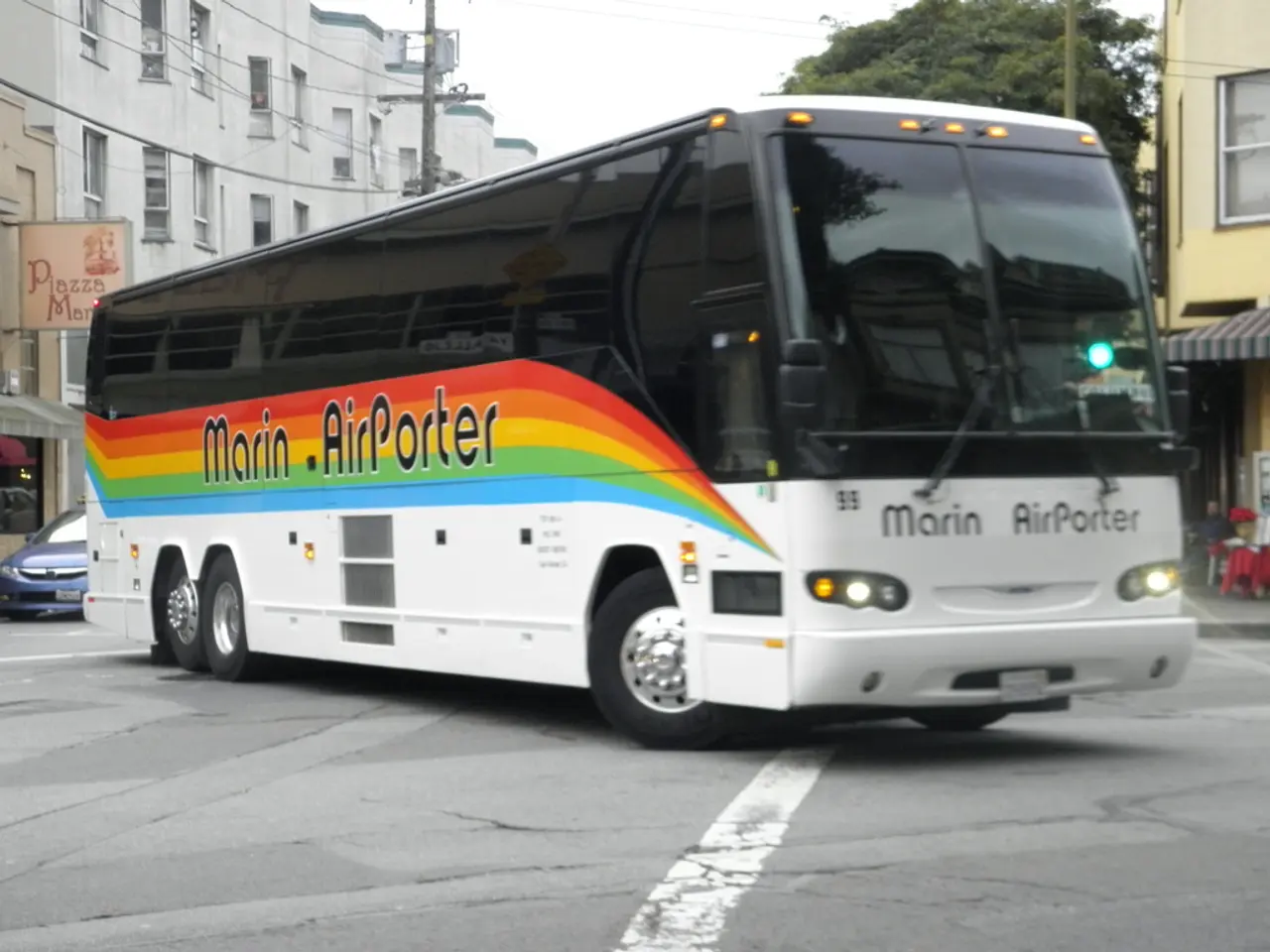Deutsche Bahn's union leader issues a warning about anticipated escalation in costs - Union head issues caution on potential fare hikes at German Railway Corporation (Deutsche Bahn)
Deutsche Bahn's planned increase in track access charges for long-distance and freight traffic has sparked growing political and industry concern, with stakeholders advocating for reform to improve rail competitiveness and contribute to sustainable logistics goals.
The proposed increases, amounting to 18% for long-distance traffic and 16% for freight, have been driven by increased government capital investment and have contributed to greater costs for rail operators. This, in turn, has influenced long-distance train pricing and operational efficiency, and poses challenges for rail freight, despite its environmental advantages.
The current debate revolves around the track pricing system, with the German Transport Association (VDV) demanding urgent reform of infrastructure access fees. They call for substantial increases in federal subsidies to reduce these charges for users, arguing that such reform is necessary to make rail freight more competitive and encourage a modal shift from road to rail.
The Monopoly Commission has recommended splitting off the German railway infrastructure from Deutsche Bahn to increase transparency and focus investment on specific projects. They argue that increased government capital to Deutsche Bahn has paradoxically led to higher track access charges, suggesting structural reform rather than just more funding.
Martin Burkart, the boss of EVG, has called on the Bundestag to stop the price increases and mitigate the track access charge through targeted support during budget negotiations. Katharina Dröge, the Green party faction leader, has accused the governing parties of inaction, while the coalition agreement between Union and SPD includes a commitment to reform the track pricing system.
The billion-dollar special fund owned by the current government could potentially prevent the price increases, as stated by Katharina Dröge. However, the exact details of how this fund would be used remain unclear.
It is important to note that regional transport prices are capped, resulting in higher price increases for long-distance and freight traffic. Deutsche Bahn's spokesperson has confirmed the planned price increases for track access charges, and its subsidiaries have been advocating for reform by politicians.
The UK example of a Track Access Discount Scheme, which waives charges to promote new services, highlights how such incentives could benefit rail freight in Germany. However, similar reforms are needed to boost competitiveness and capacity, and to make rail a more attractive alternative to road transport.
In summary, the track access charges at Deutsche Bahn have raised operational costs, affecting long-distance and freight rail competitiveness. Industry and political stakeholders advocate for reforming the fee structure—through increased subsidies, infrastructure unbundling, and targeted investment—to enable rail to better compete with road transport and contribute to sustainable logistics goals.
[1] Source: Deutsche Bahn's discount campaigns to fill trains running below target capacity. [2] Source: Increased government capital investment in Deutsche Bahn. [3] Source: Deutsche Bahn's efforts to increase passenger numbers on long-distance services. [4] Source: Recommendations from the Monopoly Commission. [5] Source: Demands from the German Transport Association (VDV) for reform of infrastructure access fees.
- The German Transport Association (VDV) suggests additional federal subsidies to reduce infrastructure access fees, arguing that this aid will not only help make rail freight more competitive but also encourage a shift from road to rail transport.
- The Monopoly Commission recommends infrastructure unbundling as a means to increase transparency and focus investment on specific projects, which may help reduce the high track access charges currently imposed by Deutsche Bahn.





